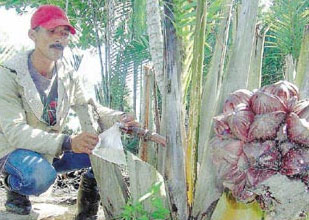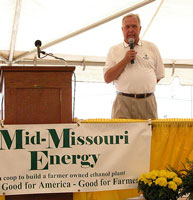 The state of Alabama is focusing on alternative fuels.
The state of Alabama is focusing on alternative fuels.
Alabama Agriculture Industries Commissioner Ron Sparks has announced the formation of the Center for Alternative Fuels.
“Hardly a week goes by that we don’t get calls to provide guidance to interested parties on how to build biodiesel or ethanol plants, or where to purchase alternative fuels. They want to know about licenses, permits, and various rules and regulations. I get requests from various sectors of agriculture wanting to know what crops should be planted for use in bio-fuel production,” said Sparks. “I am announcing today the establishment of a Center for Alternative Fuels at the Department of Agriculture and Industries. The Center will be a kind of one-stop-shop for information on what it takes to get into the business, where consumers can find it, and how Alabama farmers can support it with crops. In addition, the Center will serve as an economic development resource for recruiting producers of alternative fuel.”


 For corn growers, ethanol means markets as usual. In other words, up and down.
For corn growers, ethanol means markets as usual. In other words, up and down. 
 Every month there’s a new record set for ethanol production and the bar has now been raised to 333,000 barrels a day. That’s a 55,000 barrel per day increase since the beginning of the year, according to the latest figures released by the
Every month there’s a new record set for ethanol production and the bar has now been raised to 333,000 barrels a day. That’s a 55,000 barrel per day increase since the beginning of the year, according to the latest figures released by the 
 Here’s a
Here’s a  Former
Former 

 An analyst with Bunge Ltd., expects world biodiesel output to hit nearly 16 million metric tons by 2009.
An analyst with Bunge Ltd., expects world biodiesel output to hit nearly 16 million metric tons by 2009.